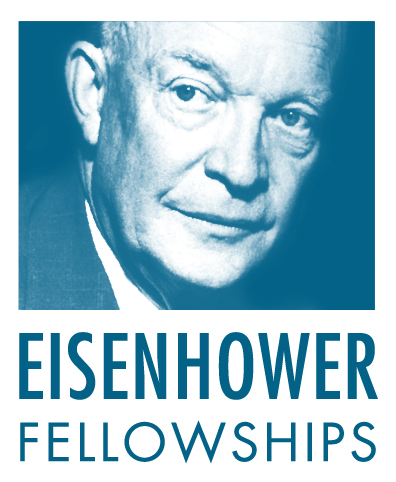In March 2014, Natalia Ponce de León’s life was irrevocably changed after a stalker threw a liter of sulfuric acid on her face and body. Ponce de León has since been, in her words, “reborn from the ashes” of that attack to become a symbol of perseverance and a living testimony to the restorative power of forgiveness. After establishing an eponymous foundation, she achieved passage of the “Natalia Ponce de León Law” in Colombia, which defines acid attack as a crime, increases penalties for attackers using chemical agents and requires adequate care for burn patients. On fellowship, Ponce de León visited leading burn clinics in the U.S., shared her inspirational story, and discussed potential resources available to advance her efforts to improve the lives of burn survivors and their families in Colombia.
Ponce de León’s first meeting on fellowship was with the staff of Bio Med Sciences, whom she hadn’t seen since they treated her in Bogota following her attack. Another emotional reunion took place at the Virginia-based headquarters of Physicians for Peace, which has provided training in burn care treatment for nurses, therapists, surgeons, doctors and psychologists in Colombia. Together they celebrated her recovery as the first patient in Colombia to receive an artificial skin face mask, documented in her award-winning film The Last Mask. Throughout her U.S. travels, Ponce de León educated burn center staff and advocates about the prevalence of acid attacks in Colombia, which in the past five years has experienced a per capita rate that rivals South Asia, according to Colombia’s National Institute of Legal Medicine and Forensic Sciences.
Ponce de León’s fellowship was ideally timed as her organization, the Natalia Ponce de León Foundation, recently partnered with the Hospital of the Fundación Santa Fe de Bogotá to develop the first private burn clinic in the country. Full-day visits with staff at the Johns Hopkins Children’s Burn Center and the Johns Hopkins Burn Center, as well as the Shriners Hospital – Cincinnati and the Shriners Hospital – Boston, provided Ponce de León with innumerable ideas, tools and contacts to inform the clinic’s development.
During the mid-program fellowship retreat in Sedona, Arizona, Ponce de León was inspired to share life experiences with burn survivor Barbara Kammerer Quayle. They exchanged strategies as patient advocates and approaches to ensure survivors (a term they prefer to ‘victims’) receive the comprehensive array of supportive services needed following the traumatizing and disruptive experience of a burn.
Phoenix Society staff warmly welcomed Ponce de León at their Grand Rapids, Michigan, headquarters, and shared their vision to unite the burn community to ensure that people across the globe have access to lifelong healing, optimal recovery resources, and burn prevention services. The Phoenix Society, founded in 1977, is a global leader in providing information, resources, and peer support to those impacted by burn injuries so they can live full, happy and productive lives.
Ponce de León concluded her fellowship travels with a visit to the Nathan Speare Regional Burn Treatment Center at Crozer-Chester Medical Center, which was named Burn Center of the Year by the American Burn Association. There, she had a final chance to get a first-hand look at the inner workings of a large-scale, successful burn program, spending several hours with the Burn Center’s team.
Ponce de León returns to Colombia aspiring to develop a model private burn clinic in Bogota – to be duplicated throughout the country – with an intensive care unit, a chemical agent burn care unit, and an outpatient clinic for patient assessment and treatment. Through contacts developed on fellowship, she is committed to advocating for:
Fully integrated care for burn patients
Prosthetics research and development
Burn education for medical students, public health providers, and the general public
Training for emergency service providers
Support groups for families and friends of burn patients
“I decided to make a decision, becoming an example for all these survivors who lack self-esteem and need to remember how important it is to love themselves the way they are, and how they can recuperate and recover their lives,” Ponce de León said. “Through this fellowship, I acquired knowledge and made contacts precisely because I want to enrich my foundation and support the many people who need help. It has been far and away the best experience in my life, and I am so proud to be an Eisenhower Fellow.”

